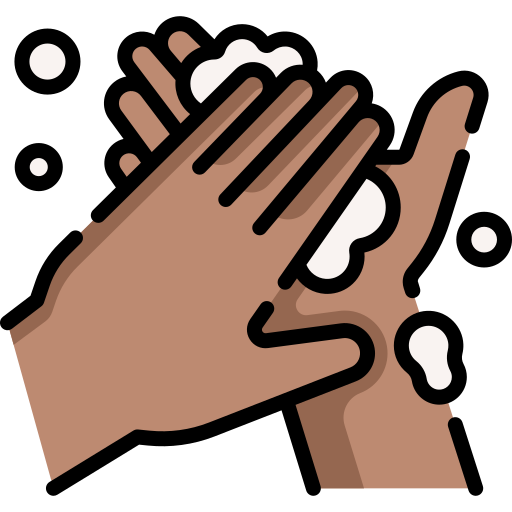
Peak viral season — colds, COVID, flu and RSV
Every year during the winter months (you might hear health-care professionals call this “peak viral season!”), many people catch the common cold, COVID-19, RSV and influenza viruses, as well as other respiratory infections.
Here are some resources to help guide and support you in the care of your child or youth when you think they are sick from a respiratory virus.
Jump to the information you need
- RSV: what you need to know
- Do I need to go to Emergency?
- How can I protect myself and others?
- Coming to CHEO
- Resources and supports
RSV: What you need to know
Starting in October 2024, a one-time immunization will be available to protect newborns against respiratory syncytial virus (RSV).
Learn more about RSV, and how you can protect your child through immunization:
What is RSV, and how does it spread? RSV is a major cause of respiratory illness in babies and young children that mainly affects their airway and lungs. RSV often causes cold-like symptoms and is the most common cause of a chest infection called bronchiolitis. RSV spreads easily from person to person. You and your child can get RSV by having direct contact with a person or surface that is infected with RSV. You can also get it by being around someone infected with RSV who is coughing or sneezing.
Babies and young children often have mild illness from RSV and recover quickly, but some may develop a severe infection that leads to hospitalization and is life-threatening.
RSV is a leading cause of hospitalization for young children from the late fall to the early spring. This is why it’s important to get your newborn immunized to offer them the best protection!
How can I protect my newborn against RSV? There are two main ways to protect yourself and your newborn against RSV:
1. Practice good hand hygiene and do your best to avoid contact with people who are ill.
2. For babies and pregnant people, immunization offers great protection against RSV and is shown to reduce hospitalization.How safe is the RSV immunization? The RSV immunization is used across the globe and results are in: it’s very safe! Immunization against RSV saves lives and reduces the need for hospitalization.
Similar to other routine immunizations there can be some minor side effects including a rash, swelling or redness at the injection site, or a slightly raised temperature.
When and where can I get my newborn immunized against RSV? Starting this October, RSV immunization will be available for babies born November 2024 to March 2025, which is the peak season for viral illnesses like RSV. This is covered by Ontario, and immunizations are available through birthing hospitals, family physicians, Ottawa Public Health and community immunization programs like Vaccinate and Up-to-Date.
For more information, visit our Vaccination and Immunization page.
How can I protect myself and others?
We all want to keep our loved ones safe and we all have a role to play in protecting others — especially babies and young children who can get very sick.
When done together, these the following steps are the best way to protect you and your loved ones, and prevent the spread of infection to others.
Wear a face mask
In the communityWearing a mask when in crowds and indoor spaces in the community helps keep everybody safe. Not everyone shows symptoms of cold, COVID-19, flu and RSV, so masks can reduce the chance that others will come into contact with infected respiratory droplets and become sick. Please use face masks in addition to good hand hygiene and physical distancing.
At CHEO
Masks work. They help prevent the spread of illness. And that matters at CHEO because we care for children who are extremely vulnerable to viral illnesses like flu, RSV and COVID-19.
Our guidelines for masks recognize this, but also the evolving nature of the viral illnesses circulating in the community.
Visit our Face masks at CHEO page for latest information:

Get vaccinated, as soon as you can
Visit our Vaccination page for more information including where you can get vaccinated, vaccine myth busters and helpful tips for kids, by kids.

Stay at home if you or your children are sick
Even if you are vaccinated against the flu or COVID, you can still spread infection to others. If you or your child are sick:
Stay home until you have been fever-free for 24 hours, without the use of anti-fever medication, and are feeling better.
Look through our resources on when to come to the Emergency Department, to help decide.

Wash and sanitize your hands regularly
- Use soap and water or hand sanitizer whenever you can to wash your hands.
- Always wash your hands before you eat.
- Wash your hands after touching commonly touched surfaces like doorknobs and handrails.
- Never touch a baby or young child without washing your hands first.

Coming to CHEO
Find helpful information to prepare for your stay or visit.
Fill out the self-screening form online ahead of time and follow our visual prompts (signage) when you arrive. Greeters will be available at the entrance to help if you have any questions.
Resources
Check out CHEO care resources to get information on common health topics like fever, flu and more:




